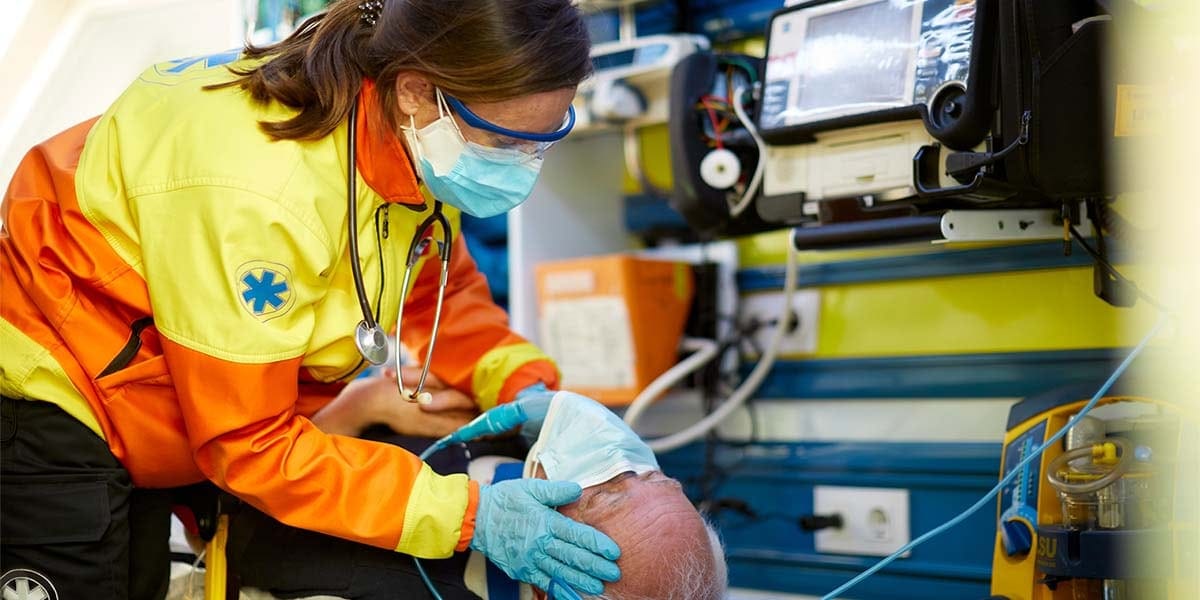When an unexpected medical emergency strikes, it can be a distressing and chaotic experience. Knowing what to expect and how to prepare for emergency medical treatment is crucial for your well-being or that of a loved one. In this comprehensive guide, we will outline the key steps and provide you with the information you need to navigate the process seamlessly.
The Importance of Preparation
In life-threatening situations, every minute counts. Being prepared can make a significant difference in the outcome. Here are the steps to ensure you are ready for emergency medical treatment:
- Stay Informed
Stay up-to-date with local emergency services, contact numbers, and nearby medical facilities. This knowledge can prove invaluable during an emergency. Understanding where the nearest hospitals and urgent care centers are located can save precious time.
- Create an Emergency Contact List
Compile a list of emergency contacts, including family members, friends, and your primary care physician. Share this list with someone you trust and ensure it’s easily accessible in your wallet or as a contact on your phone.
- Know Your Medical History
Having a detailed medical history on hand can help healthcare providers make quicker and more accurate decisions. Include information about allergies, current medications, chronic conditions, and past surgeries.
- Assemble an Emergency Kit
Prepare a basic first aid kit for minor injuries, and a more extensive emergency kit for larger-scale incidents. Your emergency kit should include essentials like bandages, antiseptic wipes, scissors, flashlight, and non-perishable food items.
- Communicate Allergies
If you have allergies or are allergic to any medication, inform the healthcare professionals immediately. This knowledge can prevent any adverse reactions during treatment.
- Keep Insurance Information Handy
Always carry your health insurance card with you. In case of an emergency, it will ensure that your medical bills are processed efficiently.
- Stay Calm
During an emergency, staying calm is easier said than done, but it’s crucial. Panic can hinder the decision-making process and add to the stress of the situation. Take deep breaths and focus on the immediate steps to be taken.
- Follow Medical Advice
Once you’re at the medical facility, listen carefully to the healthcare professionals. They are there to help and will provide instructions based on your specific situation.
- Financial Preparation
Medical emergencies can be costly. Consider having an emergency fund or insurance plan in place to mitigate the financial burden.
Understanding the Emergency Room Experience
When you or a family member requires emergency medical treatment, it’s crucial to understand what to expect during your visit to the emergency room. This knowledge can help ease your anxiety and ensure a smoother experience.
Arrival and Triage
Upon your arrival at the emergency room, the first step is the triage process. During triage, a nurse or medical professional will assess your condition to determine the level of urgency. Patients with severe or life-threatening conditions will receive immediate attention, while others may need to wait if their situation is less critical.
Medical Evaluation
After triage, you will be taken to an examination area where a doctor will evaluate your condition. They may order diagnostic tests such as X-rays, blood work, or CT scans to determine the extent of your medical issue.
Treatment
Once a diagnosis is made, you’ll receive the appropriate treatment. This may include medication, minor procedures, or even surgery for more severe cases. The medical team will work diligently to stabilize your condition.
Communication
Effective communication is essential throughout your emergency room visit. Don’t hesitate to ask questions or express concerns to the medical staff. They are there to ensure your comfort and understanding during this stressful time.
Waiting Times
Emergency rooms can sometimes be busy, leading to longer wait times. It’s important to remain patient and trust that the medical staff is doing their best to prioritize cases based on the severity of the condition.
Discharge or Admission
After treatment, you may either be discharged with instructions for further care or, in some cases, admitted to the hospital for continued monitoring and treatment.
Follow-Up Care
Following your emergency room visit, it’s vital to adhere to any prescribed follow-up care. This may involve seeing a specialist, taking medication, or attending rehabilitation sessions.
Insurance and Billing
Understanding the insurance and billing process is another critical aspect of your visit. Ensure that you’re aware of your insurance coverage and are prepared to handle any financial responsibilities.
Emotional Support
Medical emergencies can take an emotional toll on both patients and their loved ones. Seek emotional support through friends, family, or counseling if necessary.
Being prepared for an emergency medical situation is essential, and understanding what to expect during your visit to the emergency room is a significant part of that preparation. By knowing the processes, you can alleviate stress and make informed decisions regarding your healthcare. Remember, in a medical emergency, time is of the essence, and being knowledgeable and proactive can make a world of difference.
In a medical crisis, every second counts. By being informed about the emergency room process, you can navigate the situation more effectively and ensure the best possible outcome for your health.

The Role of Support and Advocacy
During a medical emergency, having a strong support system can be invaluable. Here’s how your loved ones and advocates can play a crucial role:
Emotional Support
Your family and friends can provide emotional support during a medical crisis. Their presence, words of encouragement, and comfort can help ease anxiety and stress.
Advocacy
In the chaos of an emergency room, it’s easy to feel overwhelmed. Having an advocate, such as a family member, can ensure that your voice is heard, and your questions and concerns are addressed.
Decision-Making
In some cases, you may not be in a position to make critical decisions. Your advocate can help make decisions based on your previously expressed wishes or, if necessary, in your best interest.
Communicating with Medical Staff
Your advocate can act as a liaison between you and the medical staff, ensuring that information is clear and that your needs and concerns are relayed effectively.
Gathering Information
Your advocate can take notes, ask questions, and ensure you receive detailed information about your condition, treatment options, and what to expect next.
Providing Consistency
Having a familiar face by your side can provide a sense of consistency and security during a turbulent time.
Being Prepared
It’s a good idea to discuss your medical preferences and the role of your advocate with your family in advance. Make sure they understand your wishes and can act accordingly.
Conclusion
Preparing for emergency medical treatment is not just a prudent choice; it’s a necessity. By staying informed, organizing essential information, and creating an emergency kit, you can be better equipped to handle unforeseen medical crises. Remember to keep your composure, follow medical advice, and ensure you’re financially prepared. Your well-being and that of your loved ones may depend on it.




